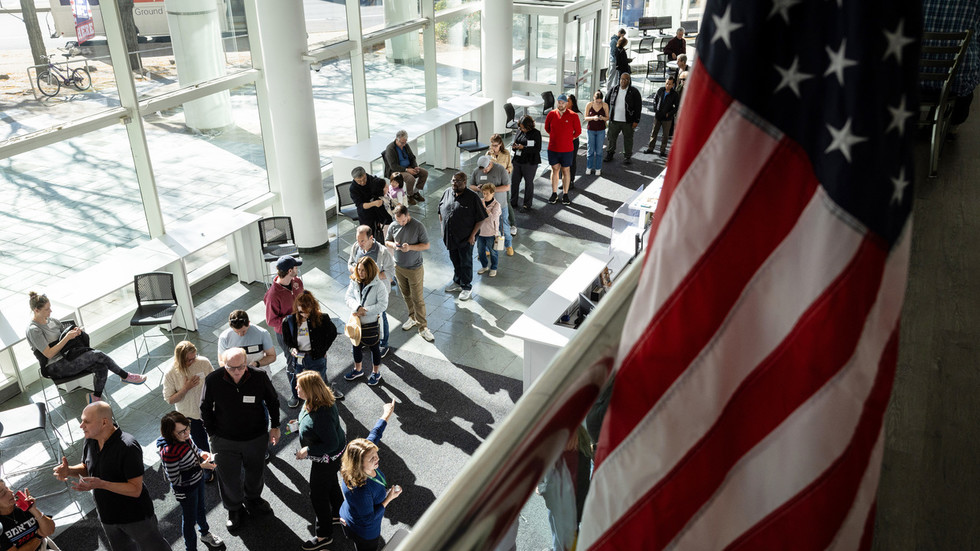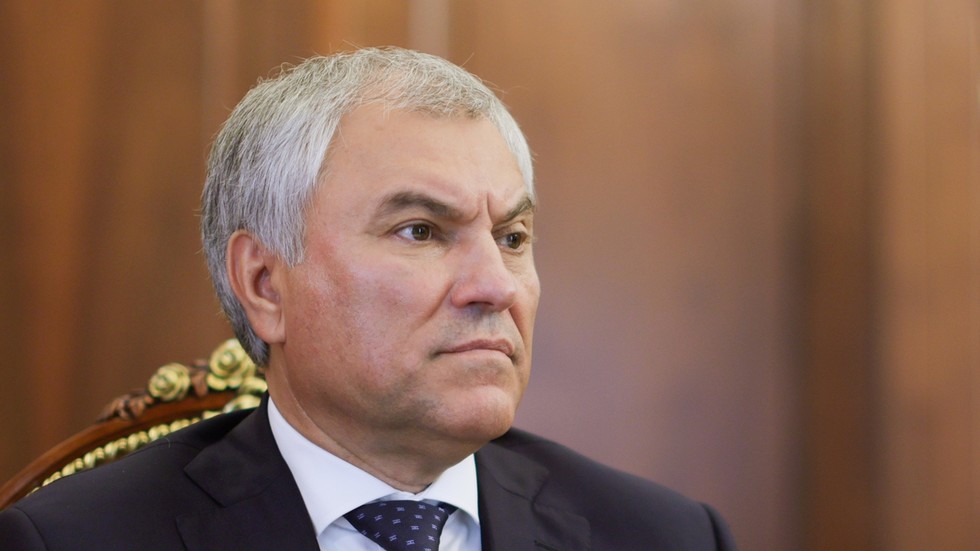EU Commission president Ursula von der Leyen clarified her intentions to cooperate with Giorgia Meloni's Fratelli d'Italia in a live debate in the Parliament, haunted by the ghosts of the far-right parties that did not participate for lack of a top candidate for the June elections.
Coalition between her centre-right European People's Party (EPP) and Giorgia Meloni's Fratelli d'Italia is a definite option, European Commission incumbent president Ursula von der Leyen told the Eurovision five-way party leader debate today (23 May), clarifying that the Italian prime minister fulfils three criteria for future partners: she is pro-EU, against Russia's Vladimir Putin and for the rule of law.
The EPP is the only mainstream party that has not signed a declaration pledging not to cooperate with far-right forces such as the European Conservatives and Reformists (ECR) and the Identity and Democracy (ID) group - which are battling the EU liberals to become the third force in the next parliament - neither of which parties was represented in the debate, though their spirits dominated the discussion between the candidates.
The ECR includes the likes of Spain's Vox, France's Reconquête and Italy's Fratelli d'Italia, while the ID includes Salvini's Lega and Marine Le Pen's Rassemblement National.
The four leading candidates from the groups of the Left, the Greens, the Liberals and Democrats of Renew Europe and the Socialists and Democrats (S&D) slammed von der Leyen for overtures to the far-right.
"I do not consider ECR and ID are democratic forces [because] they have a different vision of Europe," Socialist lead candidate Nicholas Schmit said during the debate.
Schmit assured that he would never work with the far right and asked von der Leyen what being pro-European meant to her. "[Meloni's] idea of Europe is not the same that you have".
"They [far-right parties] are absolutely against Europe, they want to dismantle Europe from within," said the EU's liberal frontrunner Sandro Gozi of Emmanuel Macron's Renaissance party.
Von der Leyen clearly signalled that she does not intend to ally with the entire ECR group, but only with parts of it that meet the three criteria, even if she and Meloni do not share the same views on issues such as LGBTQI rights, she said.
The five candidates discussed topics ranging from the economy to defence, migration and climate in what was the last showdown for the parties’ leads before voters go to the polls on June 6-9.
A look at some of the key moments that shaped the conversation.
Expel Dutch liberal party VVD 'now', asks Reintke
Under pressure of questioning, Gozi admitted that the decision of the Renew Europe member VVD to enter a coalition government with Geert Wilders' far-right party was a "big mistake".
"In this parliament we will always say no to an alliance with the far-right," he commented, stressing that there was still no government and that his group was now focusing on the EU elections.
Earlier this week, his group's president, French MEP Valerie Hayer, announced that the group would vote on whether to expel the Dutch VVD party - but only after the elections, on 10 June.
Reintke summoned the memory of her native Germany's experience during the 1930's as a warning against the dangers of a swing to the far right, as polls predict for the next five-year mandate.
"Send a very clear signal now," the Greens' top candidate insisted, warning fellow candidates not to treat with the parties.
The EU needs more ‘own resources’ to fund defence: VDL
Following Russia's military aggression in Ukraine, the EU has supported the country financially and militarily - while committing to invest more in their national defence industries and capabilities.
But the parties (and member states) have had divergent approaches.
Gozi advocated boosting defence through common bonds, and Germany's Reintke has spoken of a European defence fund.
Von der Leyen stressed that there are only two ways to finance an expansion of the bloc's defence industry: member state contributions or new EU funding - saying she was more inclined to support the second.
"I think it's time to talk about own resources for the European level. You cannot give tasks to the European level without funding it," von der Leyen said.
The Commission president also recalled Greece's Mitsotakis' idea of an air defence shield for Europe as part of the need to speed up efforts to improve the bloc's defence and security capabilities.
"We have to make sure that the fragmentation we have in the EU stops, that we have common European projects," she said.
For the Greens' Terry Reintke, the EU also needs to reform its voting rules in the Council to prevent a single member state from derailing foreign policy decisions, as Hungary's Orbán did with the sanctions packages against Russia.
"We also have to finally end unanimity in the Council when it comes to defence and foreign policy, we cannot give people like Viktor Orbán a veto on our security," Reintke said.
Dignify EU citizens’ lives, combat the far-right
In the latest Eurobarometer, two of the top three concerns of citizens were the fight against poverty and the creation of new jobs - yet social issues played second fiddle in the debate to defence, foreign affairs and security.
Schmit, who now holds the post of EU Commissioner for Jobs, stressed the need to invest in people, improve their working conditions, ensure a decent standard of living, reduce poverty and provide equal opportunities for all.
The Luxembourger was supported by left-wing frontrunner Walter Baier, who began his speech by recalling the need to talk about real-life problems during the debate.
According to Baier, the roots of the rise of the extreme right are social.
"Unless we give people a dignified life, decent housing and secure jobs, we will not be able to defeat the far right in Europe," emphasised left-wing top candidate Walter Baier.

 5 months ago
35
5 months ago
35









